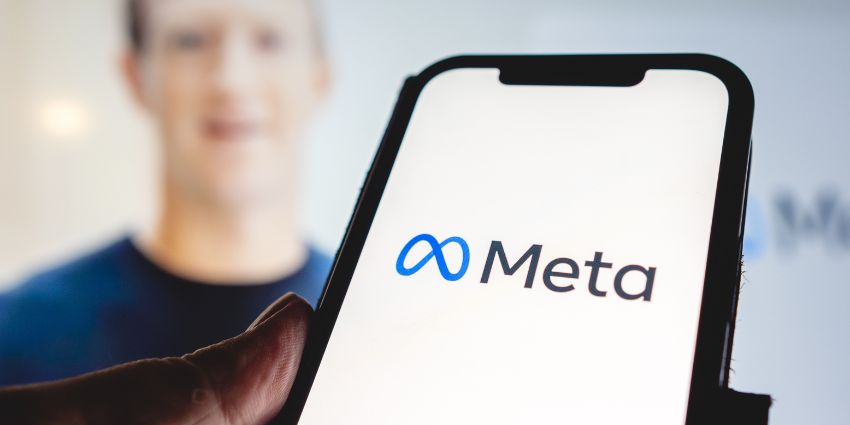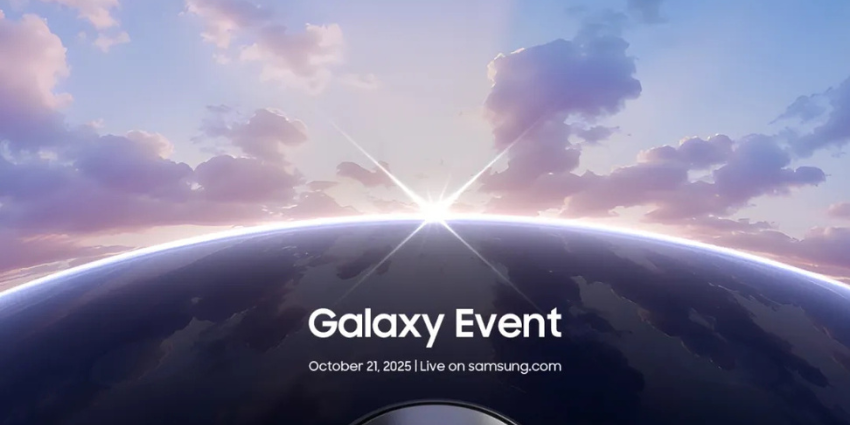The launch of the new Meta Quest Lifestyle app accelerator could help to turbocharge extended reality development. It’s a great time to be a developer in the XR space.
New headsets and hardware are constantly emerging, introducing new opportunities to experiment with spatial computing and cutting-edge immersive experiences. McKinsey says the metaverse has the potential to generate $5 trillion in value by 2030. Plus, enterprise XR adoption is increasing.
Plus, plenty of excellent software development kits are out there, giving beginners all the tools they need to design XR experiences. Now, Meta, one of the leaders in the extended reality and metaverse space, is actively offering funding to creators who want to build their own apps for the Quest.
Here, I’ll share everything you need to know about the Lifestyle App Accelerator program, from how to apply to what you can create with the funding.
What is the Meta Quest Lifestyle App Accelerator?
Announced on June 18th, 2024, the Meta Quest Lifestyle App Accelerator is a program that offers seed-stage grant funding to developers who want to build an app for the Quest ecosystem. Alongside financial support, you also get product resources and mentoring from VC partners and the Meta team.
According to Meta, this program aims to support “organic innovation” in the extended reality market and drive the development of new experiences for the Quest ecosystem. The Quest app store is packed with hundreds of apps, from business tools like Microsoft Teams to games.
However, Meta wants to take its offering to the next level and drive the adoption of XR devices by empowering new developers. That’s part of why the company introduced its new “open ecosystem strategy” in 2024, making the Meta Horizon operating system available to all users.
How Does the Program Work?
Details are scarce, but the Meta Quest Lifestyle App Accelerator program seems relatively straightforward. Meta says any eligible developer can apply to join the program today, and a dedicated team will review their application.
Selected participants will receive grant funding across three “paid milestones” throughout a six-month program. This will allow them to prototype concepts with a small team. Alongside this funding, applicants will receive various forms of support.
First, venture partners committed to nurturing the Meta Quest ecosystem, like Boost VC, Anorak Ventures, and Lightspeed, will provide access to resources. Meta will also offer mentorship, coaching, and access to peer learning opportunities.
Plus, teams in countries where Meta Quest 3 is available will be able to apply to receive up to three developer kits, which will need to be returned to Meta later. Submissions close on October 15th, 2024 and teams will be selected by the end of this year.
Why the “Lifestyle” Focus?
In its blog post announcing the new program, Meta highlighted that the App Accelerator is specifically designed for fun, delightful “lifestyle” experiences. That might seem a little odd, considering plenty of lifestyle-focused apps are already out there.
Plus, Meta certainly seems to be increasing its focus on enterprise consumers. In recent years, we’ve seen the launch of “Meta Quest for Business.” Even Quest 3 features many specific capabilities that will appeal to enterprise users.
However, Meta says its current focus is on showing people from all walks of life the benefits of mixed reality for “more than just gaming.” During the Meta Quest 3 launch, Zac Reid showed users how the device can help them learn to play instruments with apps like PianoVision.
Meta believes there aren’t enough apps like this, giving users access to unique fashion, DIY, arts and crafts, and other experiences. That’s why they’re launching the Meta Quest Lifestyle App accelerator, explicitly focused on the “lifestyle” category.
What Kind of Apps Does the Accelerator Support?
The category of “lifestyle app” is a little broad. Technically, many things qualify as lifestyle apps. For instance, I use Microsoft Teams for more than just work. It helps me manage my professional and personal schedule, communicate with others, learn, and grow.
Fortunately, Meta has shared some specific examples of what they’re expecting from developers in the Meta Quest Lifestyle App Accelerator program. They say they want creators to use the Horizon OS, Quest 3, and Presence platform to create lifestyle apps in specific categories that leverage mixed reality, AI, and hand tracking.
The Categories
Some key categories include:
- Fashion: Developers can create virtual fitting rooms for customers, with AI assistants for personalized styling. Alternatively, they can design infinite closets, where customers can experiment with different looks or even design tools for clothing creation.
- DIY: If you’ve ever struggled with a DIY project using YouTube videos alone, Meta believes mixed reality will help. They’re encouraging the creation of apps that enhance projects, renovations, repairs, and home décor experiences.
- Design: This is one category I think will appeal to B2B companies, even though Meta has said they’re not supporting B2B apps. Design tools for virtual prototyping, and spatial visualization, are sure to have an impact on product design, and the industrial metaverse.
- Music: Building on the example shown at the Meta Quest 3 launch, the XR company encourages teams to create apps that help users create music, learn how to use more instruments, and experiment with musical creativity.
- Cooking: Meta wants developers to help turn every homeowner into a chef with unique apps where they can experiment with recipes, learn cooking techniques, and discover how to prepare food more effectively.
- Arts and Crafts: For crafty consumers, Meta wants developers to create apps that help them to design new products, experiment with different crafting styles, and learn new skills, preferably with hand tracking and AI features.
Meta notes that these are just a few examples intended to inspire people in the Meta Quest Lifestyle App Accelerator program. They also want developers to explore opportunities in everything from dating and beauty to shopping.
Meta Quest Lifestyle App Accelerator: What’s Not Supported?
In its announcement post, Meta said that it’s “exciting” to see what unique experiences developers come up with in various categories, suggesting that you have some creative freedom. However, there are some limitations.
The company has specifically said they’re looking for developers and founders that want to focus on the Lifestyle space, and drive engagement in mixed reality. They’re not looking for Series B companies that have already accessed funding for app development.
Additionally, they’re not considering applications for apps focusing on marketing, B2B apps targeting professionals, or education. That seems odd, given the rising popularity of immersive collaboration and training apps for enterprise users.
Meta also says you shouldn’t apply if you’re crating a video game app, media app (like Disney+), or anything to do with fitness, wellness or sports (at this time).
However, there’s no guarantee that Meta won’t create a separate version of its Meta Quest Lifestyle App Accelerator program for different kinds of developers. As I noted above, I think some “lifestyle” apps will appeal to B2B users, like the suggested “Design” apps.
The Meta Quest Lifestyle App Accelerator: How to Apply
Submissions for the program opened on June 18th, 2024, and will close on October 15th, so now’s the time to apply for funding. You can find the application form on the Meta Quest website here, but I recommend double-checking all the terms and conditions and eligibility requirements before you apply.
For instance, it’s worth noting that at least one member of your development team needs a technical background and a year of experience developing with Unreal Engine and Unity. You’re also limited to a single pitch application, so you can’t ask for funding for multiple projects.
You don’t need to be incorporated to apply for the Meta Quest App Accelerator program, but you need to be a legally recognized, for-profit business entity.
What to Include in Your Pitch
Meta offers some handy FAQ guidance for beginners who want to participate in the program here. For the most part, however, here’s what you should include in your pitch:
- Team details: Share insights into the work your team has already done, your background in the XR industry, and your skill sets. Remember, at least one team member needs a technical background and developer experience.
- Product vision: Probably the most essential part of the pitch, outline the market you’re targeting, the problem you want to solve, and your business model. Make sure you draw attention to why you should be considered for the Meta Quest Lifestyle App accelerator program and how you will use the Quest 3’s latest features.
- Milestone data: Outline what you expect to deliver throughout the project. You should be able to offer a Mechanical Proof of Concept within three months. By the end of the project, you’ll need to provide a complete product design document and Vertical Slice.
- Overview of development: Explain where you are in your development and funding process. Share how much you expect to spend on development, how much funding you’re applying for, and if you’ve raised any funding.
The Future of Meta Quest Development
The launch of the Meta Quest Lifestyle App Accelerator program is an exciting step forward for Meta. It demonstrates the company’s continued commitment to expanding adoption in the XR landscape and empowering developer creativity.
Although it’s unusual that Meta is only focusing on the “Lifestyle” space right now, that could change. For instance, Meta has said they’re not considering non-profit and fitness apps “right now.” That doesn’t mean they won’t do so in the future.
In the meantime, if you want to create something new for the Metaverse, now is the time to apply. Good luck.







